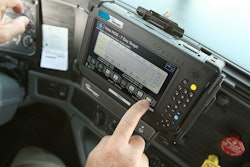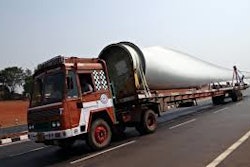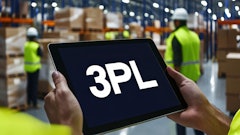
The trucking industry is on the brink of big change. The upcoming Federal Motor Carrier Safety Administration mandate on electronic logging devices (ELD) will heavily impact trucking companies and drivers alike. This is an opportunity for the industry to use mobile technology for better efficiencies, as well as compliant operations.
The new ruling will require all long-haul drivers to use ELD rather than paper forms to log their hours of service (HOS) compliance. The use of ELD will help drivers share accurate reports of their HOS electronically in real time. When finalized, all drivers must be in compliance by 2019.
The final ruling on the mandate represents a turning point for how companies will manage their business processes going forward. Many larger trucking companies will need to buy ELDs to satisfy the mandate. We may also see more businesses buy tablets or smartphones with applications to facilitate compliance and greater visibility into field operations. Either way, companies will need support from their information technology (IT) departments to ensure a smooth transition.
Smaller businesses, often with tighter budgets and fewer resources, will also need to think through how to transition from their older practices. Today, many still rely on clipboards and paper to manage their critical business processes.
ELDs bring significant benefits. They can cut down on paper and make it easier for workers to share data for HOS reporting. They simplify the process so that drivers don't need to fax their records from the road or return to the office to complete their paper logs. And they give businesses near real-time visibility into their timekeeping and compliance activities.
However, the transition can’t be done overnight. Solution providers can help businesses develop the right strategy for managing the transition. They can also offer technology solutions that not only satisfy the mandate, but also improve productivity for their workforce in multiple ways.
For example, a trucking company can purchase a fleet management solution that offers global positioning system (GPS) vehicle tracking, engine diagnostics, driver behavior, HOS compliance and a mobile forms app. The trucking company is able to benefit from a wide range of technology. It can now receive its drivers’ HOS electronically, locate its drivers in near real time and gather delivery information via a mobile device.
We provide such bundled solutions to a Midwest distributing company that hauls and stores equipment for businesses. The distributing company relies on tablets, ELDs, a navigation application and a solution that reports fuel tax information. Now it can pinpoint excessive speeding to conserve fuel, report fuel taxes automatically to save time and keep tabs on drivers to improve safety.
Companies can also add push-to-talk functionality to simplify communication for their workforce. Individuals or groups can provide quick status updates, and alert their supervisors of issues in the field using their smartphones or tablets. Technicians no longer need to carry dedicated radios to reach colleagues for quick exchanges. The fast and reliable communication improves internal processes and helps better serve customers.
Mobile technology is changing the entire trucking landscape. The new ELD mandate helps encourage trucking companies to adopt a mobile-first mindset. Companies can use mobile technology to be better prepared and earn a reputation that stands out from their competitors.


![Pros To Know 2026 [color]](https://img.sdcexec.com/mindful/acbm/workspaces/default/uploads/2025/08/prostoknow-2026-color.mduFvhpgMk.png?auto=format%2Ccompress&bg=fff&fill-color=fff&fit=fill&h=100&q=70&w=100)







![Pros To Know 2026 [color]](https://img.sdcexec.com/mindful/acbm/workspaces/default/uploads/2025/08/prostoknow-2026-color.mduFvhpgMk.png?ar=16%3A9&auto=format%2Ccompress&bg=fff&fill-color=fff&fit=fill&h=135&q=70&w=240)






